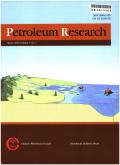水力旋流器和诱导气浮技术在海上采出水除油中的作用
IF 4
Q1 Earth and Planetary Sciences
引用次数: 0
摘要
采出水是油气开采的副产品,如果处理不当,会给环境带来重大挑战。本文主要介绍了诱导气浮和水力旋流器两种主要的海上除油技术的进展,并对其从20世纪40年代至今的发展进行了回顾。该研究在效率、能源消耗和废物产生方面对这些技术进行了详细比较,并提供了定性和定量评估。特别关注的是水力旋流分离器诱导气浮(HIGF)系统的集成,该系统在提高除油效率的同时降低了能耗,使其成为海上采出水管理的重要解决方案。此外,该综述确定了浮选装置的具体设计改进,例如多级配置,并探讨了操作控制在优化水力旋流器性能中的作用。研究了采出水排放标准的全球差异,强调需要更严格的环境法规。此外,该研究强调了水力旋流器和浮选技术的结合使用,作为解决海上采出水处理中环境和操作挑战的综合方法。本文章由计算机程序翻译,如有差异,请以英文原文为准。
The role of hydrocyclone and induced gas flotation technologies in offshore produced water deoiling advancements
Produced water, a byproduct of oil and gas extraction, presents significant environmental challenges if not properly treated. This review focuses on advancements in two primary offshore deoiling technologies, namely: induced gas flotation and hydrocyclones, tracing their evolution from the 1940s to the present. The study provides a detailed comparison of these technologies in terms of efficiency, energy consumption, and waste generation, offering both qualitative and quantitative assessments. Particular attention is given to the integration of hydrocyclone-induced gas flotation (HIGF) systems, which enhance oil removal efficiency while reducing energy consumption, making them an important solution in offshore produced water management. Additionally, the review identifies specific design improvements in flotation units, such as multistage configurations, and explores the role of operational control in optimizing hydrocyclone performance. Global variations in produced water discharge standards are examined, emphasising the need for stricter environmental regulations. In addition, this study highlights the combined use of hydrocyclone and flotation technologies as a comprehensive approach for addressing both environmental and operational challenges in offshore produced water treatment.
求助全文
通过发布文献求助,成功后即可免费获取论文全文。
去求助
来源期刊

Petroleum Research
Earth and Planetary Sciences-Geology
CiteScore
7.10
自引率
0.00%
发文量
90
审稿时长
35 weeks
 求助内容:
求助内容: 应助结果提醒方式:
应助结果提醒方式:


